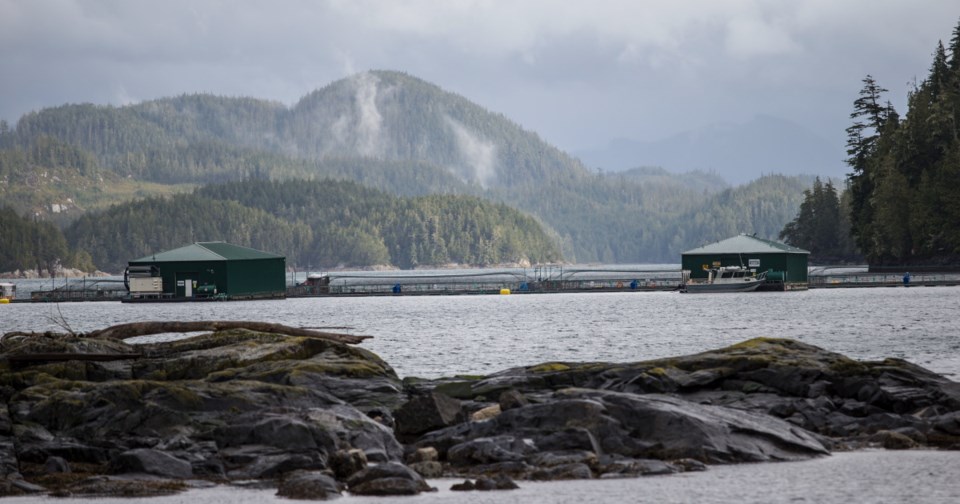All 17 fish farms in British Columbia's Broughton Archipelago will either be closed or moved in an effort to create a migration path for wild salmon.
The agreement between the federal and provincial governments, First Nations and two fish farm companies, Marine Harvest Canada and Cermaq Canada, was announced Friday with a goal to protect and restore wild salmon.
Opponents to open-net pen fish farms in the Broughton Archipelago have conducted protests and occupations on some of the farms.
Experts and First Nations in the area have long complained the farms spread disease, viruses and sea lice, harming the wild juvenile salmon that migrate through the same waters. The B.C. Salmon Farmers Association has said there is no evidence that farmed salmon negatively impacts wild salmon.
Friday's agreement was prompted by provincial government guidelines announced in June that meant fish farm operators had to get First Nations' approval to operate in their territory. The guidelines also said operators needed to satisfy Fisheries and Oceans Canada that their operations didn't have an adverse impact on the wild stock in the area.
The First Nations included in the agreement are the Namgis, the Kwikwasut'inuxw Haxwa'mis and Mamalilikulla.
Bob Chamberlin, chief councillor of the Kwikwasut'inuxw Haxwa'mis First Nation, said Indigenous Peoples have long demanded justice for the wild salmon in their territories.
"What we're witnessing today is critical to Canada's development. We're seeing a jointly defined government, First Nations process come to shared recommendations."
The plan is for four farms to close next year, two in 2020 and four more in the two years after that. The agreement says the remaining seven tenures will end unless they have First Nation approval and Department of Fisheries licences.
The agreement includes the implementation of new technologies to address risks on the farms, such as sea lice, and steps to restore wild salmon habitat in the Broughton Archipelago, a collection of islands off northeastern Vancouver Island.
Chamberlin thanked both Cermaq and Marine Harvest for negotiating the agreement.
"What I kept hearing from you time and time again ... was a concern for the people who have employment. We had to strike a balance between the needs of our people and the needs of industry, and I believe we have done that expertly."
Diane Morrison, managing director of Marine Harvest, said the province is changing and that means businesses must evolve. She said it is an important agreement for its 600 employees, their families and their future.
"Marine Harvest will not be making any changes to staff or contractors because of this agreement, but based on the agreed plan we will be initiating a transition in the Broughton and our operations there will change."
In a news release, the company said the agreement "will ensure a viable production area is maintained during the transition period and allow for business adjustments to be made. ... There are no changes to employment anticipated at this time."
B.C. Premier John Horgan said public confidence in the fish farm industry is critically important, and the agreement includes a plan for oversight of the operations by area First Nations, a template that can be used in other industries across B.C.
Horgan said the process has created a sense of goodwill between governments, industry and First Nations.
"That's why there's hope and optimism for the future that wild salmon is what brought us together and wild salmon is what will keep us together."
— By Terri Theodore in Vancouver



